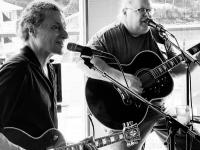Education and making a lifetime career decision
Today’s high school students, particularly juniors and seniors, gaze into a murky future wondering about the panoply of career choices and career opportunities that face them in modern America.
Some economists speculate that our national economy has fairly recovered from the “Great Recession” of 2007-2008 and that the array of employment (or career) prospects has likewise improved. Yet, as these same economists also observe, the prospects for a return to a “full-employment economy” (5 percent) remain still dim.
The unemployment rate now stands at 7 percent, down from 10 percent in 2009. The rate would be somewhat higher if those long-term jobless, who have reluctantly departed the job market, reentered.
For today’s students such data highlight the importance of having some post-high school education in view of the continued great disparity in joblessness between job seekers with high school degrees and those without. They also explain the importance many of the nation’s high schools assign to the STEM courses: science, technology, engineering and math.
Put in other words, “Go to MIT and you’ll get a job with Facebook in Silicon Valley!” But, we might ask, is all advanced education merely about employability, about securing steady employment, and accumulating wealth? Should high-school students, pondering their futures, focus strictly on careers that seemingly promise high incomes; or might they contemplate instead a career or occupation holding forth a “more meaningful life.”
A recent article in the Sunday New York Times (December 1, 2013) about the “Millennial” generation (those born after 1980) found that, contrary to some characterizations of that age group, many Millennials are more concerned with having “meaningful lives” (i.e., helping others) than pursuing mere happiness, i.e., making money. The article suggested that launching a career amidst the “Great Recession” may explain this preference among Millennials.
In any case, the choice itself (a meaningful life versus happiness) is an important one and worthy of deep consideration for high school students thinking of the future. It is equally important to contemplate that life itself is an ongoing, never ending search for meaning involving schooling, of course, and attendance at a church, a synagogue, or mosque, but also a lifetime of reading or personal study, watching film or other theatrical drama, listening to music or lectures, or engaging in serious conversing with friends and family.
Thus, as high school juniors and seniors make critical decisions about their future, where to go to school?, what to study?, what careers to pursue?, they should be aware that their decisions, while certainly influenced by the current economic environment, are also about less tangible, but equally vital issues: Does my life choice provide meaning? Will it be satisfying? Will it be fulfilling? Am I making a lasting contribution to the well-being of society or civilization?
Since 1964, almost 50 years ago, the Boothbay Region Student Aid Fund has to be sure remained neutral in this debate between happiness versus the meaningful life. Instead, the BRSAF has simply urged region students to seek advanced education, believing that the more education on has the better able you are to wrestle with such august choices.
Moreover, the BRSAF has promised that region students who have been accepted at a university, college, community college or trade school, but can’t meet the cost to get there, that we will provide scholarship aid ranging from $1,000 to $10,000 with continuous support for up to six years right into graduate school. It is our vow to continue keeping that promise.
Event Date
Address
United States





















